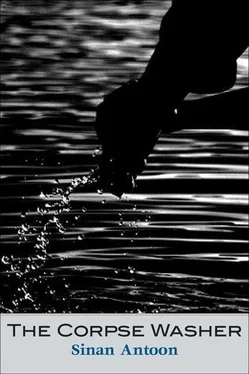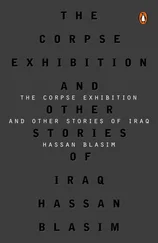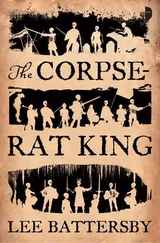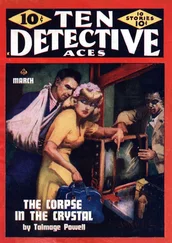“Did you read that in history books at al-Basra University?” I joked.
“Popular history has its own truth,” he said. “You’re just jealous because Baghdad has no lake.”
“The Tigris is more than enough for Baghdad,” I said.
He told me that Sawa was the only lake in the world fed entirely by groundwater. It was mentioned in Yaqut al-Hamawi’s Encyclopedia of Cities and dated back to pre-Islamic times. An ancient city there, Ales, had been an encampment for the Persians. During the Islamic conquests, the Persians and Arab tribes had fought nearby. Sawa was also mentioned in the historical archives of the Ottomans. During their era, it was situated at the al-Atshan River, before a massive flood changed its course in 1700. So even rivers change course. I was a river trying, perhaps in vain, not to flow where the map wanted it to go.
Basim turned off the paved road to the right and drove on a gravel road for five minutes before stopping. He opened the door and said, “Come, Mr. Intellectual, you will thank me forever for introducing you to Sawa.”
I got out and went around the car and walked by his side. The sun was about to drop to the horizon and was clad in orange. I noticed that the sky near the horizon was bluer. The road we were walking on sloped and I could see the calm surface of the lake. We stood at the edge.
“Have you ever seen anything like it?” he said.
The lake’s beauty was gripping. Its balmy blue was therapeutic, especially for a soul thirsting in the harshness of the desert day and night. Its shore was covered with calcifications that looked like cauliflowers with cavities carved by the salts that filled the lake’s waters forming a wall on all sides.
I asked Basim about the fish in the lake. He said it had only one kind, and it was not edible. We squatted and I extended my hand to dip it in the water. It was very cold, as cold as the water I applied now to the body of this man who looked like Basim’s twin. I felt guilty. Here I am washing a dead man’s body while my thoughts are wandering in the fissures of my memory. Did father do this as well, or did he focus on his rituals all day long? Is that possible? Here I am, carrying them out in a semimechanical way.
We used to escape to the lake whenever we had a chance, to sit on its shore and chat. Once, while we were driving around in Basim’s car, I saw gutted buildings near the lake. He called them tourist relics. In the late 1980s, the Ministry of Tourism had built a number of apartments and a restaurant in an effort to encourage tourism in the area. The spot became a mecca for family and school trips, but the place was looted and abandoned after the 1991 war. I asked him to take me there. The sight was sad. Nothing was left except the concrete skeletons of the apartment buildings that had been built steep to provide a lake view. They looked like fossils of mythic animals crouched at the lake’s feet.
American fighter jets hovered over our unit all the time. We heard in the news about antiaircraft batteries being bombed after the no-fly zone was imposed in northern and southern Iraq after 1992. The no-fly zone was supposed to prevent the regime from oppressing citizens, but these fighter jets would kill innocent civilians and even herders. I never knew whether it was out of sheer idiocy, or whether it was a game, using Iraqis for target practice. Our C.O. stressed that we should ignore the jets and try not to incite the enemy. We were not to lock onto a target and give the pilot a pretext to attack us. Soldiers were ordered to maintain a defensive posture and respond only if attacked. This is how we had many months of peace.
We were awakened at dawn one day by the sound of a massive explosion which shook the factory (as we called our unit). Two more explosions followed. Then we heard the sounds of rocks and pebbles falling on the ceilings and windows and the whizzing of a fighter jet overhead. I got out of bed, quickly put on my uniform, boots, and helmet, and darted outside with the others. I remembered that Basim had been assigned to the night guard shift outside the southern building near the missile battery. Thinking of him, I felt a lump in my throat.
The bombing had caused a storm of dust, some of which got into my eyes and mouth. Shards were scattered in the open space between the two buildings. I could smell gunpowder. Everyone was running toward the southern building, which was about a hundred meters from the main building. The entire building and its tin plank roof had been destroyed, leaving only one of its four columns intact. There was chaos. Some soldiers were trying to lift the tangle of metal and gray blocks to look for survivors under the debris.
I went around the rubble of the building to look for Basim. I used to ridicule those who claimed, before some terrible or painful event took place, “I felt it in my heart.” But as I ran toward the back of the building, I felt my heart as a deep well into which stones from every direction began to rain. The branches of the tree next to the missile battery had caught fire. The truck with missiles mounted on it was now a mass of rising flames. Some soldiers were trying to put the fire out with dirt and fire extinguishers. Pieces of metal were scattered about. I spotted a body twenty meters to my right and ran toward it.
He had been thrown onto his stomach, but I recognized his hair. His weapon was three or four meters away. I screamed his name as I ran, but he didn’t move. His left arm was twisted backward in a strange position and looked like it had snapped. I knelt next to him and held him by the shoulders as I turned him over on his side. He felt heavy, unresponsive. His coffee eyes were wide open, looking upward. Blood seeping out of his nose and the side of his mouth had covered his moustache. I called his name again and put my ear to his chest but could hear only my own breathing and the screams of others. I lifted my head and held his hand and felt his wrist for a pulse. Nothing. I closed his eyes, kissed his forehead, and took him in my arms. I don’t remember how long I stayed there sobbing by his side.
Basim was one of six soldiers who died that day. In the evening I accompanied his body in a military vehicle. The C.O. had asked me to inform his family of his death. I asked the C.O. for permission also to go to al-Samawa to attend the first day of the funeral and he agreed.
I had met Basim’s father twice before. His first words were “There is no power save in God.” Then he asked: “Did he suffer?”
I answered that he hadn’t, though I wasn’t sure. Six or seven minutes had passed between the time of the explosion and when I found him.
The southern building was never repaired or rebuilt. The rubble was shoveled into a mound and just left there.
I put a swab of cotton into the hole the bullet had bored in the man’s forehead and another swab into his nostrils. I had already put swabs between his buttocks and inside his anus. I prepared to shroud him.
In the winter of 2003 it seemed that, once again, war was coming. My mother asked Father, ”What are we going to do? Are we staying in Baghdad?”
He said: “Where else would we go? If God wants to end our lives, he will do so here. This is not the first war, but I sure hope it will be the last one. Enough.”
She asked me more than once, as if I had the answer, “What are we going to do, Jawad?”
I would tell her: “We’ll just wait things out.”
But we got ready for wars as if we were welcoming a visitor we knew very well, hoping to make his stay a pleasant one. During the last few weeks before the war we bought plenty of candles and canned food just in case. My mother went to Najaf to visit my brother Ammoury’s grave one last time.
Читать дальше












